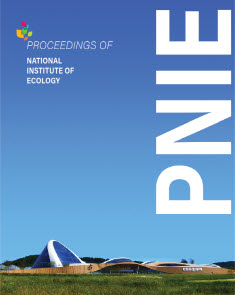Species Identification Method via Unique Genetic Markers for Reticulitermes kanmonensis
Species Identification Method via Unique Genetic Markers for Reticulitermes kanmonensis
ParkKibeom(Kibeom Park) (Invirustech)
ChoYoungho(Youngho Cho) (Invasive Alien Species Team, National Institute of Ecology)
ParkYoungjun(Youngjun Park) (Invasive Alien Species Team, National Institute of Ecology)

초록
Invasive alien species, along with climate change, are major contributing factors to biodiversity loss, and their unintentional introduction through imported goods is increasing. Termites, as wood-feeding insects, pose a significant threat when introduced into Korea via imported wood, necessitating a rapid and accurate identification method. In this study, we developed a diagnostic method based on species-specific genetic sequences for identifying Reticulitermes kanmonensis, a recently identified species. Termite samples were collected from Wanju-gun, Jeollabuk-do, and subjected to whole-genome sequencing to pinpoint species-specific genetic sequences. Utilizing these sequences, we designed primer sets and employed TaqMan-based primer sets and qPCR analysis to select the final primer sets capable of rapidly distinguishing R. kanmonensis. The genetic detection method developed here offers a rapid means of identifying alien termite species, likely enhancing termite management and quarantine practices in Korea.
- keywords
- Specific markers, Termites, Reticulitermes kanmonensis
Abstract
Invasive alien species, along with climate change, are major contributing factors to biodiversity loss, and their unintentional introduction through imported goods is increasing. Termites, as wood-feeding insects, pose a significant threat when introduced into Korea via imported wood, necessitating a rapid and accurate identification method. In this study, we developed a diagnostic method based on species-specific genetic sequences for identifying Reticulitermes kanmonensis, a recently identified species. Termite samples were collected from Wanju-gun, Jeollabuk-do, and subjected to whole-genome sequencing to pinpoint species-specific genetic sequences. Utilizing these sequences, we designed primer sets and employed TaqMan-based primer sets and qPCR analysis to select the final primer sets capable of rapidly distinguishing R. kanmonensis. The genetic detection method developed here offers a rapid means of identifying alien termite species, likely enhancing termite management and quarantine practices in Korea.
- keywords
- Specific markers, Termites, Reticulitermes kanmonensis
- 투고일Submission Date
- 2024-09-23
- 수정일Revised Date
- 2024-10-18
- 게재확정일Accepted Date
- 2024-10-19
- 다운로드 수
- 조회수
- 0KCI 피인용수
- 0WOS 피인용수
_학술지_디자인_시안_koar_top_300x55.png)

